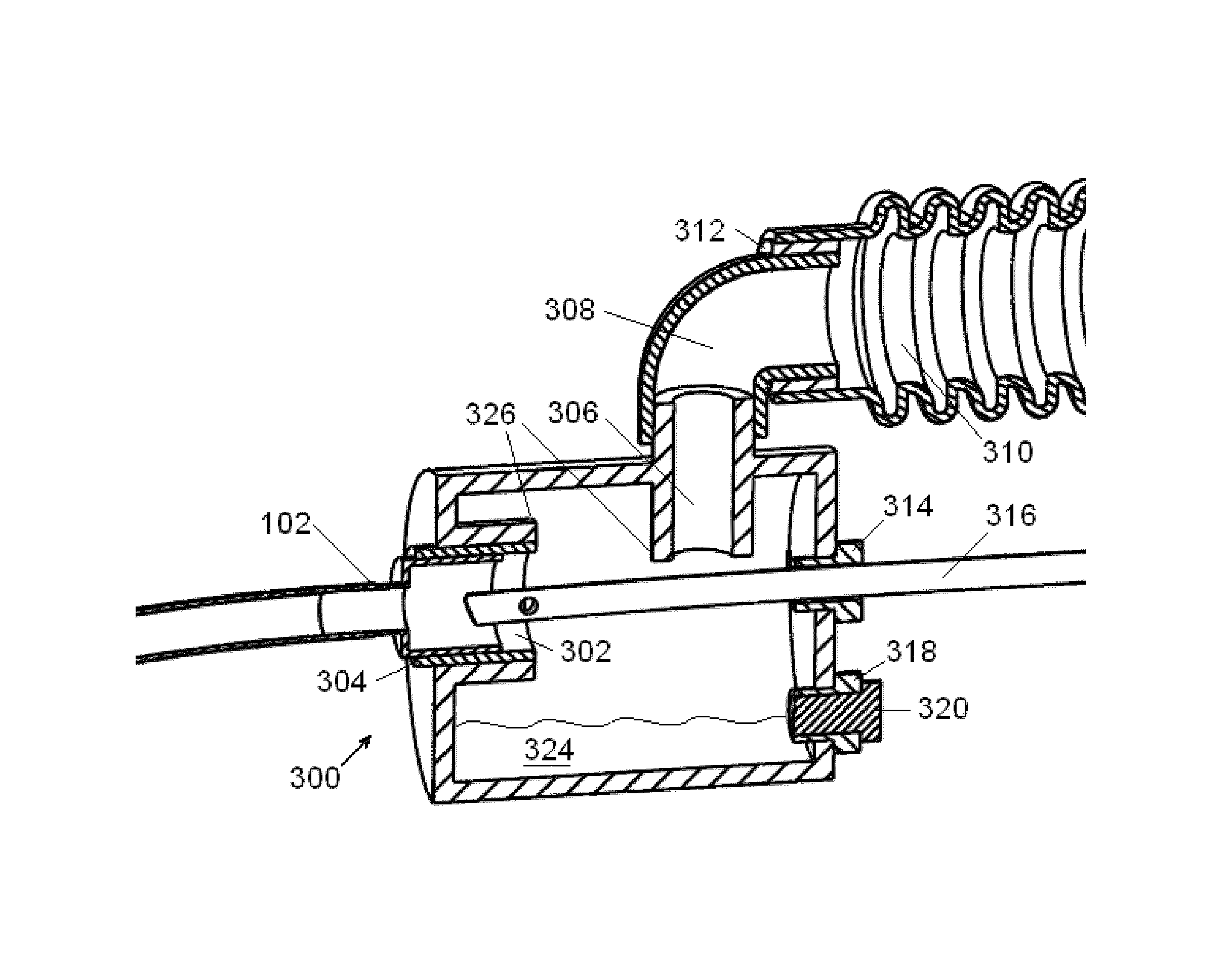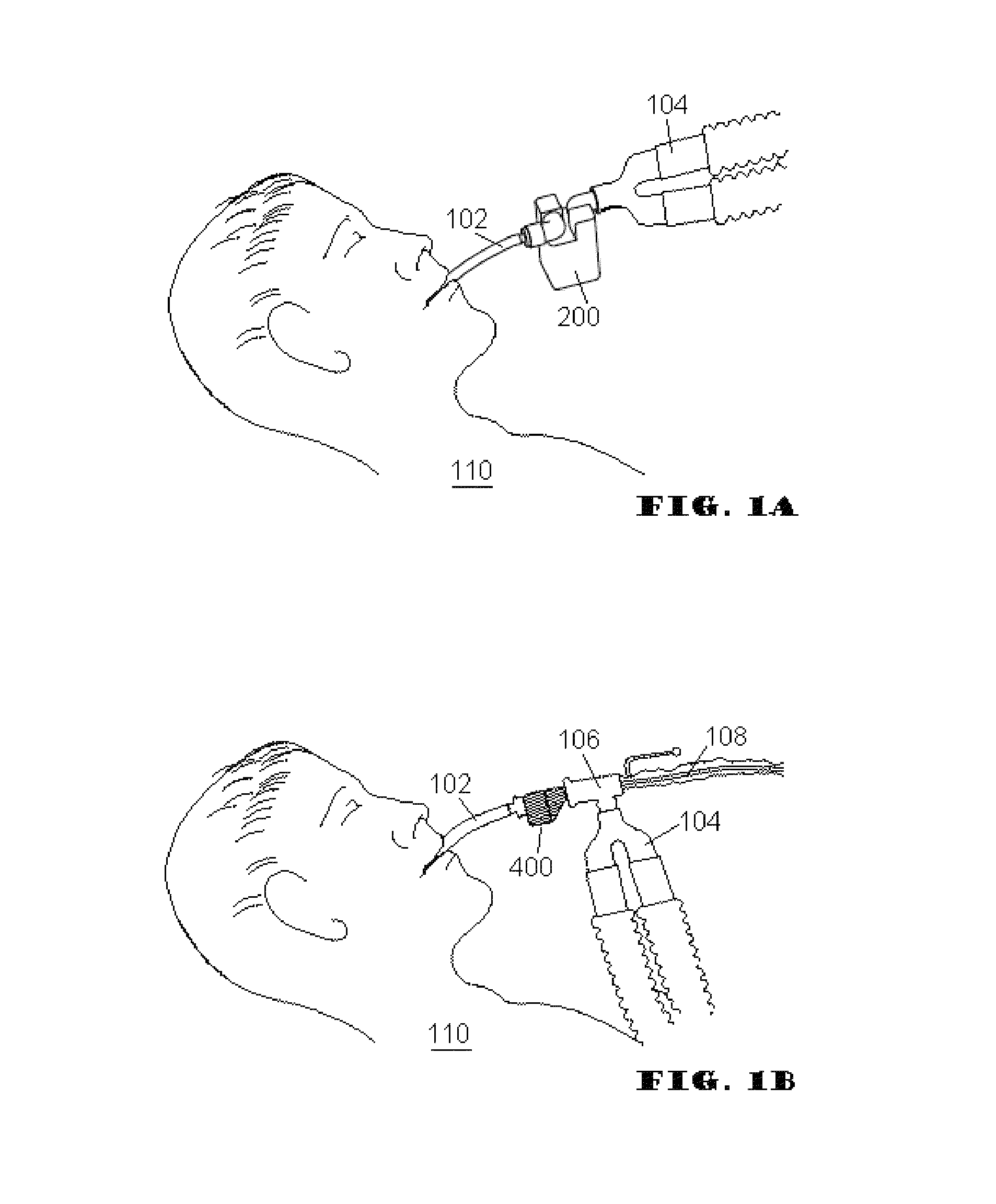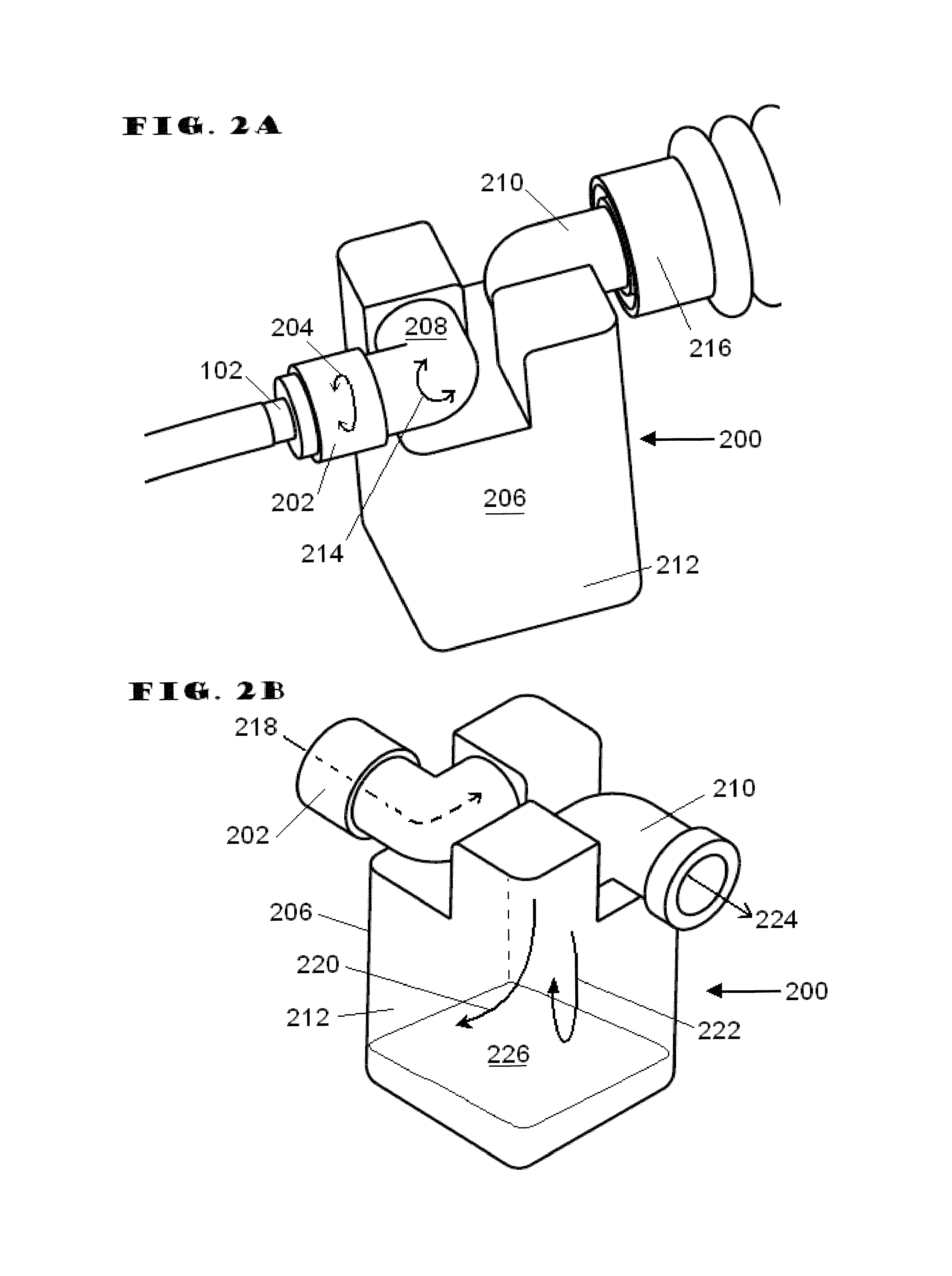Respiratory secretion retention device, system and method
a retention device and respiratory secretion technology, applied in the field of respiratory secretions and airway devices, can solve the problems of imposing unnecessary and excessive dead space, affecting the adherence of respiratory secretions, and forcing egress through the lumen, so as to reduce the adhesion of respiratory secretions
- Summary
- Abstract
- Description
- Claims
- Application Information
AI Technical Summary
Benefits of technology
Problems solved by technology
Method used
Image
Examples
Embodiment Construction
[0053]During the exhalation phase of respiration fluid is expelled from the lower respiratory tract. Most of the fluid are in the form of gases, but liquid and particulate matter are also expelled. The RSR acts to separate the “respiratory secretions” and “airway fluids” from the respiratory gasses. For purposes of this disclosure, “respiratory secretions” and “airway fluids” may include sputum, mucus, mucus plugs, and / or other all other nongaseous matter which may be conveyed out of the lower respiratory tract and the like.
[0054]Embodiments of the present invention address deficiencies of the art in respect to artificial airways and respiratory secretion management, and provide a novel and non-obvious apparatus, system, and method for managing respiratory secretions and fluids in artificial airways. In an embodiment of the invention, a Respiratory Secretion Retention (RSR) device for connecting to an artificial airway can be provided. In an embodiment of the invention, a respirator...
PUM
 Login to View More
Login to View More Abstract
Description
Claims
Application Information
 Login to View More
Login to View More - R&D
- Intellectual Property
- Life Sciences
- Materials
- Tech Scout
- Unparalleled Data Quality
- Higher Quality Content
- 60% Fewer Hallucinations
Browse by: Latest US Patents, China's latest patents, Technical Efficacy Thesaurus, Application Domain, Technology Topic, Popular Technical Reports.
© 2025 PatSnap. All rights reserved.Legal|Privacy policy|Modern Slavery Act Transparency Statement|Sitemap|About US| Contact US: help@patsnap.com



